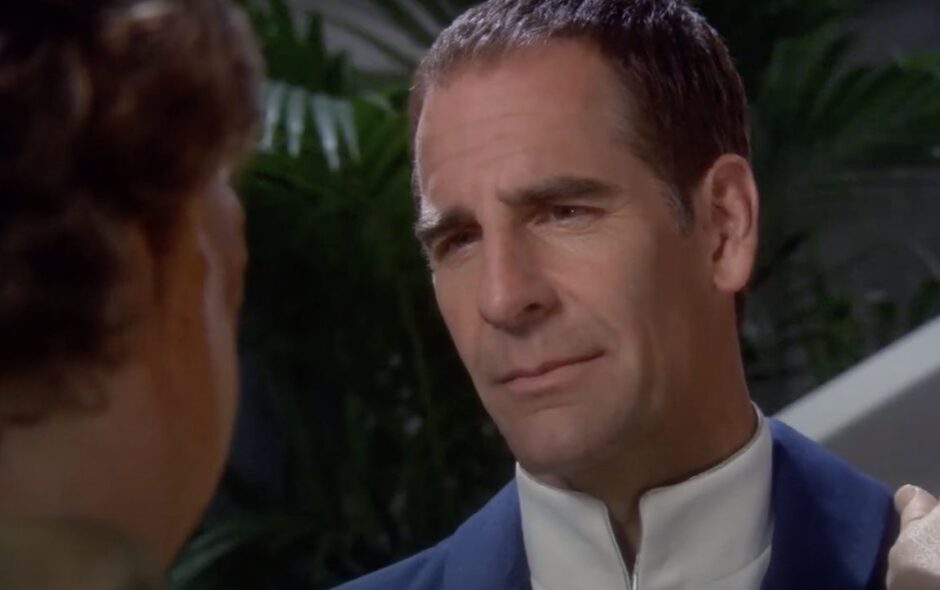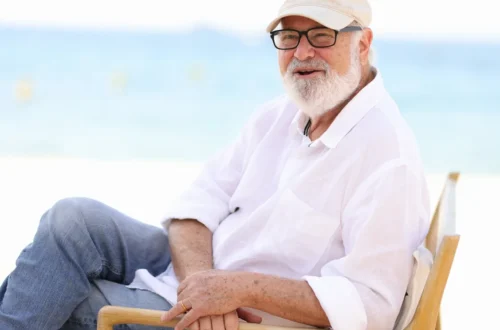Scott Bakula may be preparing for a return to the Star Trek universe, two decades after the final episode of Star Trek: Enterprise aired. This time, however, his character Jonathan Archer would not be at the helm of a starship. Instead, he would occupy one of the highest offices in Federation history—as President of the United Federation of Planets.
The concept, which has been in informal development for some time, comes from Michael Sussman, a writer-producer from Enterprise who helped shape Archer’s original on-screen journey. According to Sussman, the idea is rooted in a blink-and-you-miss-it moment from the Enterprise episode “In a Mirror, Darkly, Part II.” In that storyline, a starship computer display briefly revealed Archer’s hypothetical career trajectory in the “prime” timeline: Admiral, Starfleet Chief of Staff, Ambassador to Andoria, Federation Council member, and, by 2184, President of Earth. Though originally just a background detail meant for dedicated fans, it planted the seed for something more substantial.
Years later, during a casual email exchange with Bakula, Sussman jokingly asked, “When are we going to see Star Trek: Archer on Paramount+?” That question sparked a deeper discussion about the possibilities for the character’s later years. The result was a more ambitious pitch for a series tentatively titled Star Trek: United, which would follow Archer’s rise through the political ranks and his leadership at a formative moment in the Federation’s history.
The tone of the series, as envisioned by Sussman and Bakula, would be unlike any other Star Trek currently on air. They see it as a fusion of the political intrigue of The West Wing and The Diplomat with the lived-in realism of Andor, the recent Star Wars prequel that redefined its franchise’s storytelling. Instead of space battles and alien-of-the-week encounters dominating the narrative, the focus would be on diplomacy, coalition-building, and the moral compromises required to hold together a fragile interstellar alliance.
“Archer has always been a man of action,” Sussman has said in past interviews, “but by this point in his life, the mission is about uniting worlds, not exploring them.” The show would reportedly explore not just the grand politics of the Federation, but also the personal side of leadership—family tensions, the sacrifices of public service, and the burden of maintaining peace in a galaxy still learning to coexist.
The pitch made its way to Secret Hideout, Alex Kurtzman’s production company, which oversees modern Star Trek content for Paramount+. While the initial discussions were encouraging, the project did not immediately move into formal development. Still, both Bakula and Sussman remain optimistic, especially with Paramount’s recent leadership changes following the Skydance merger. The hope is that the fresh corporate direction could lead to a renewed interest in expanding the franchise in unexpected ways.
If it were to move forward, Star Trek: United would serve as a bridge between the events of Enterprise and later Trek series like Discovery and Strange New Worlds. It would also mark the return of a character many fans feel never got a proper send-off. Enterprise ended in 2005 with a finale that left many unsatisfied, both for its abruptness and for shifting its focus away from Archer and his crew. A series set in Archer’s political years would provide the opportunity to revisit the character in a more mature, high-stakes context.
The timing could be ideal for such a project. Star Trek is currently enjoying a period of creative expansion on Paramount+, with shows targeting different segments of the fan base: the nostalgia-driven Strange New Worlds, the animated comedies Lower Decks and Prodigy, and the upcoming Starfleet Academy, which is expected to skew toward younger viewers. A politically charged drama centered on the Federation’s leadership could appeal to an older audience, as well as to fans craving stories that dig into the philosophical and ethical core of the franchise.
For Bakula, the role would represent both a return and a reinvention. As Captain Archer, he played a man on the front lines of humanity’s first steps into deep space. As President Archer, he would portray a leader tasked with keeping those hard-won alliances intact, facing challenges that require persuasion and principle as much as decisiveness and daring. It would be a character arc spanning from the bridge of a starship to the corridors of power—a journey rarely explored in the Star Trek canon.
Whether or not Star Trek: United ever makes it to production, the idea itself has already stirred excitement among longtime fans of Enterprise and the larger Trek community. It offers the chance to revisit a beloved figure, fill a gap in the franchise’s timeline, and experiment with a style of storytelling that trades phasers for politics. In a universe built on the ideals of cooperation and exploration, President Jonathan Archer could be the leader the Federation—and the audience—didn’t realize they needed to see again.




